Kula Kwanza- Lessons from the field in Kenya
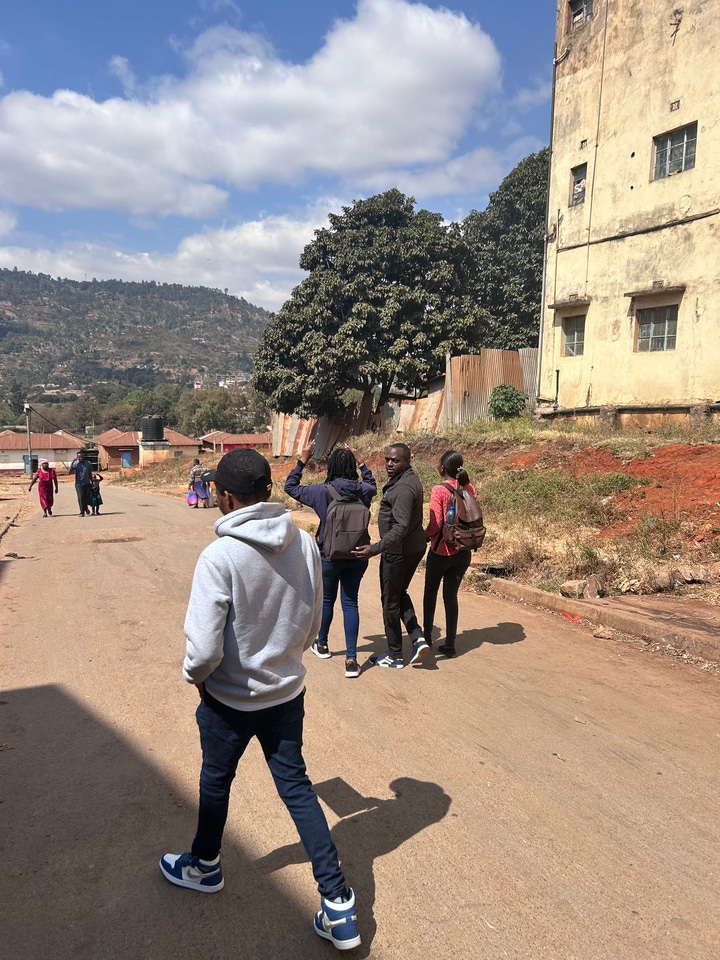
Kula Kwanza
“You can never step into the same river twice.” Home is often taken for granted, too familiar to notice. Yet this summer, returning to Kenya for my Laidlaw Leadership-in-Action (LiA) reminded me that home is not just where we begin—it is also where we can grow the most.
After a chilly spring semester in Ithaca, I was eager for the warm tropical sun and the chance to finally work in person with my host organization, Kula Vyema, in Ruiru, Kiambu. I had been virtually involved for the past two years through literature reviews and team discussions, but this was my first chance to contribute on the ground.
Our work is part of the External Food Environment Surveillance Systems (EFESS) project, a multi-institutional collaboration with Purdue University, CIAT, the University of South Carolina, and the Kula Vyema Center for Food Economics. The goal is to develop methods for monitoring external food environments in two secondary cities in Kenya. By collecting data directly from food vendors, the project examines not only their role in shaping local food systems but also how their livelihoods are shaped by economic and social conditions.
My responsibilities were two-fold:
- Data Analysis: In the office, I worked on vendor price data from previous cycles. This involved orienting myself with variables, developing research questions (for example, on bulk discounts and consumer behavior), coding, and presenting statistical findings in weekly meetings. My analysis informed refinements to future data collection and generated preliminary insights into vendor pricing.
- Research Assistance in the Field: I joined experienced enumerators and researchers to pilot, revise, and implement qualitative tools, as well as participate in training discussions.
My fieldwork unfolded in three stages.
Piloting the tools came first, during visits to Machakos and Kirinyaga counties. This was my introduction to hands-on field data collection. I tested both quantitative and qualitative instruments, learning how respondents engaged with each. The quantitative tool was structured and efficient, while the qualitative tool—based on open-ended interviews—was dynamic and required flexibility. Piloting showed where questions needed rephrasing and gave me a first glimpse into how methods are sharpened.
Next was training in Nairobi. This was not a top-down session but a collaborative process where enumerators, researchers, and project leads shared perspectives. We discussed how to phrase sensitive questions, how to respect respondents’ time, and how to navigate translation in multilingual contexts. Together, we translated the interview guide into Swahili, Kikuyu, and Kamba, ensuring accessibility and refining our shared approach.
Finally came data collection. On the very first day, although nervous, I challenged myself to conduct an interview. Taking that step helped me gain traction quickly. With support from my teammates, I became more confident, and by the second week, interviewing felt natural. Evenings were spent transcribing interviews late into the night, building both camaraderie and data quality.
Listening to food vendors share their stories expanded my understanding of livelihoods beyond what literature alone could offer. Vendors of all ages—from my peers to seniors with decades of experience—described resilience amid fluctuating prices, shifting regulations, and even protests. Some respondents eagerly participated; others politely declined, even blocking follow-up calls. These interactions underscored both the challenges and possibilities of community-based research.
I learned the labor of research—long days, emotional stories, and late-night transcription—which deepened my respect for both enumerators and community members.
This was my first real exposure to qualitative research, and it reshaped how I think about data. I realized that data is not just numbers—it is people’s lived experience, context, and narrative. Challenging myself to interview from day one reminded me that growth comes through discomfort. I learned that I can adapt quickly, ask better questions, and contribute meaningfully in collaborative research environments.
This experience reinforced my interest in the intersection of research, data, and development. Whether I pursue a career in academia or industry, I know I will carry forward the lessons of humility in fieldwork and respect for community voices. As I continue my studies in data science and real estate/finance, these skills will be central to my vision of becoming a global change leader—someone who can combine quantitative rigor with human-centered understanding.
I am deeply grateful to the giants whose shoulders I stepped on this summer. I thank the Kula Vyema Center, led by Dr. Simon Kimenju, and my supervisor Joyce Kamau, for their guidance and support. I am equally thankful to Anthony, a researcher at Kula Vyema, and Grace from the HR team, whose support made my time with the organization smoother. I am also thankful to the Purdue University team led by Dr. Nilupa, Dr. Ramya Ambikapathi from CIAT, and Morgan Boncyk, MPH, from the University of South Carolina, for their mentorship and encouragement. My appreciation extends to the enumerators, participants, and community members who welcomed me into their world and trusted me with their stories. Finally, I thank the Laidlaw Foundation for giving me the opportunity to step into this experience and grow as both a researcher and a leader.
“Kula kwanza”—eat first. This phrase captures what this summer taught me: to ground myself, to learn from communities, and to approach leadership with humility and tenacity. My LiA was not only engaging and fun—it reshaped the way I see research, home, and my role as a future leader.
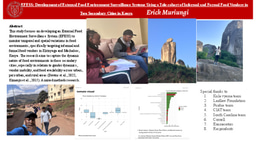
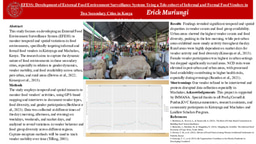
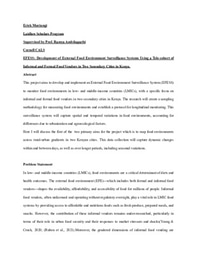
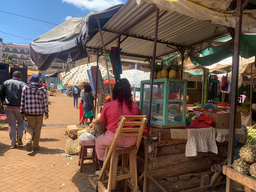
Please sign in
If you are a registered user on Laidlaw Scholars Network, please sign in